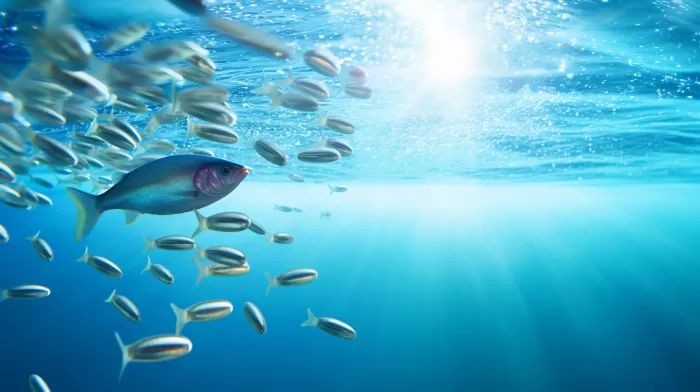It’s no secret that the modern world can be a stressful place, leading many individuals to seek relief in the form of antidepressants. In fact, roughly one in four Americans and Canadians regularly use these medications to combat stress, anxiety, and depression. However, the question remains: What happens to these chemicals once our bodies have eliminated them? As it turns out, there may be cause for concern – not only for humans but for the aquatic environment, as well.
The Path of Pharmaceuticals
When antidepressants, such as Prozac, are eliminated from our bodies, they don’t just vanish into thin air. Instead, they pass through our sewage treatment plants and eventually, make their way into our waterways. The problem arises when the concentrations of these drugs begin to increase in the aquatic environment, potentially having negative effects on fish, their ecosystems, and the people who consume them.
Research in Montreal Raises Concerns
In Montreal, researchers have found that a significant amount of Prozac, along with other pharmaceuticals, are being released into the St. Lawrence River. Although further research will be required to determine the exact effects these chemicals are having on fish and the ecosystem as a whole, researchers are already concerned.
Dr. Sébastien Sauvé is a chemist at the University of Montreal and one of the researchers investigating this issue. He states, “We know that antidepressants have negative side effects on human beings, but we don’t know exactly how these chemicals are affecting the fish, and by extension, the St. Lawrence River’s ecosystem.” Interestingly, while Dr. Sauvé notes that the concentration of antidepressants in the river is relatively low – equivalent to about a grain of salt in an Olympic-size swimming pool – he also emphasized that there is still cause for concern. “We are seeing an impact on the river’s ecosystem, which should concern cities everywhere,” he warned.
Uncharted Waters: The Effects on Fish
As Dr. Sauvé mentioned, there is still much that must be learned in terms of the impact these chemicals are having on aquatic life. Some potential, though speculative, negative effects include changes to fish behaviors, altered reproductive capabilities, and the buildup of chemicals in fish tissues, which could lead to possible health implications for those who consume them.
One study, published in the journal Aquatic Toxicology, found that even low levels of antidepressants in the water could disrupt the mating behaviors of fathead minnows. Males became less interested in females, and their courtship rituals became disrupted, leading to fewer eggs being laid. Furthermore, researchers discovered that the exposure to these chemicals could linger, with male fish continuing to exhibit changes in behavior up to three weeks after exposure ceased.
While the extent of such potential dangers remains unknown, there is enough evidence to warrant increased monitoring and research to ensure the safety and well-being of both aquatic life and those who consume it.
The Bigger Picture: Worldwide Implications
The issue of antidepressants in our waterways isn’t limited to Montreal or the St. Lawrence River. Pharmaceutical contamination is a growing concern throughout the world, as more and more people rely on prescription medications for various conditions. In fact, a study published in the journal Science of the Total Environment discovered traces of over 60 different pharmaceuticals in the tissues of fish found in the Niagara River, which borders the United States and Canada.
Urban areas with higher populations are more likely to have higher concentrations of these drugs in their waterways, posing increased risks to the aquatic ecosystems found in those regions.
Moving Forward: Addressing the Problem
With evidence mounting that pharmaceutical contamination in our waterways is an issue that must be addressed, there are multiple strategies that can be employed to combat the problem. Here are a few ways that can help mitigate the risks:
- Improve wastewater treatment technologies: Investing in advanced wastewater treatment technologies that can better filter out pharmaceuticals from the water is essential. Some countries, such as Switzerland, have already taken steps in this direction by improving their wastewater treatment plants to remove more contaminants.
-
Encourage responsible disposal of medications: Educating the public on how to dispose of unused or expired medications properly can help reduce the amount of pharmaceuticals that end up in the water.
-
Reduce prescriptions when possible: Encouraging healthcare providers to prescribe medications only when necessary could lead to less reliance on prescription drugs, reducing their prevalence in the environment.
-
Promote eco-friendly pharmaceuticals: Encouraging the development of pharmaceuticals that have a lower environmental impact can help create a more sustainable solution.
Though more research is needed to fully understand the consequences of antidepressants and other pharmaceuticals on aquatic life, it’s clear that a proactive approach to ensuring the health of our environment, and ourselves, is crucial. By working together to address this growing issue, we can hope to create a better balance between human needs and the well-being of our planet.



